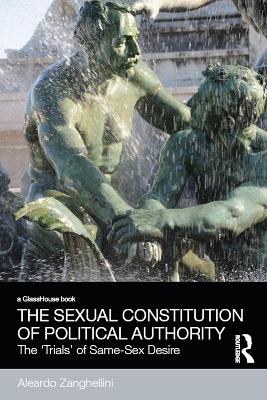Social Justice
1 total work
While there is no shortage of studies addressing the state's regulation of the sexual, research into the ways in which the sexual governs the state and its attributes is still in its infancy. The Sexual Constitution of Political Authority argues that there are good reasons to suppose that our understandings of state power quiver with erotic undercurrents. The book maintains, more specifically, that the relationship between ideas of political authority and male same-sex desire is especially fraught. Through a series of case studies where a statesman's same-sex desire was put on trial (either literally or metaphorically) as a problem for the good exercise of public powers, the book shows the resilience and adaptability of cultural beliefs in the incompatibility between public office and male same-sex desire. Some of the case studies analysed are familiar ground for both political/constitutional history and the history of sexuality. The Sexual Constitution of Political Authority argues, however, that only by systematically reading questions of institutional politics and questions of sexuality through each other will we have access to the most interesting insights that a study of these trials can generate. Whether they involve obscure public officials or iconic rulers such as Hadrian and James I, these compelling fragments of queer history reveal that the disavowal of male same-sex desire has been, and partly remains, central to mainstream understandings of political authority.
